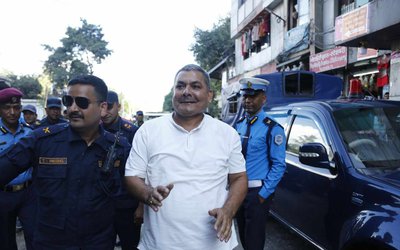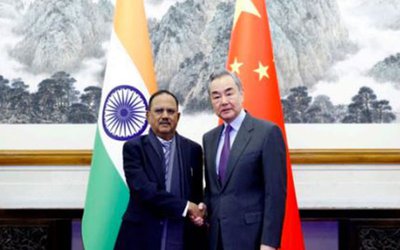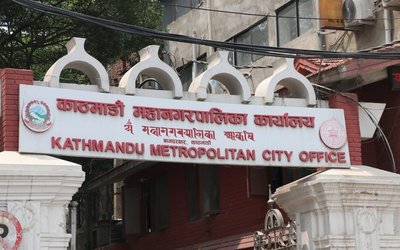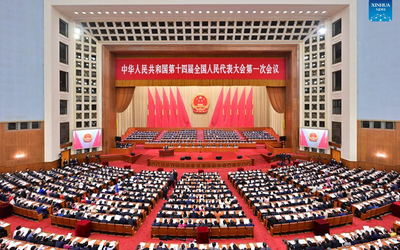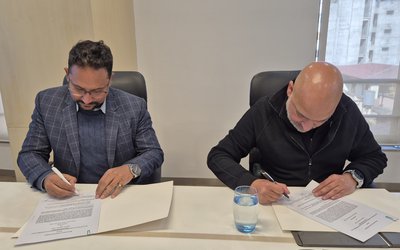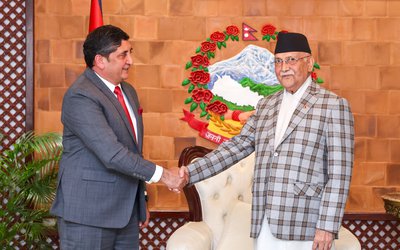Uniting for universal access: towards zero new HIV infections, zero discrimination and zero AIDS-related deaths', comes 30 years into the AIDS epidemic and just months ahead of a high-level meeting of the General Assembly in June on HIV Aids. I represent civil society and I represent government of Nepal and everything in between.
In Nepal, legalizing homosexuality and recognizing third genders by supreme court in 2007 not only led the dramatic reduction of violence against MSM/TG by security forces but the acceptance of LGBTI by families are growing, more and more MSM/TG are open about their sexuality and defying the forced hetero sexual marriage their families may be imposing on them, who are not heterosexual, Seeking information and health services around safe sex and HIV prevention and treatmentif they are HIV positive.
The crematoriums which were excluding MSM and Third-gender died with Aids to be cremated are now open to MSM/TG died with HIV/AIDS, at least ensuring death with dignity. And I must say here that many countries still criminalizing such communities and behaviors will not let us achieve zero discrimination. We must have universal de-criminalization. UN must recognize third-genders (or trans-genders).
We are in the process of drafting new constitution and the fundamental rights committee of constituent assembly of Nepal has come up with a set of draft fundamental rights including, non discrimination on the ground of sexual orientations and free primary health care that includes HIV treatment. Countries like Nepal moving forward with improving our constitutions and laws and even ready to commit more
fund on HIV from within the countries.. We have probably the best UN general secretary ever who speaks out for marginalized, socially excluded populations and sees the important of greater focus andinvolvement of young people and push for these 3 excellent Zeros, but until the rich nations and fast growing economies commit enough fund for HIV treatment and HIV prevention programs we will not achieve zero aids related deaths, we will not achieve zero new infection and zero aids related death.
Now only about 6 millions in the south have access to treatment, there are over 13 million people waiting to be saved, despite knowing the fact that these lives can be saved, inaction by our rich nation's government leaders, these lives are facing death that is caused by subtle attack on human dignity or grave humiliation or a degradation of human beings. And that is clearly crime against humanity. Let me remind the definition of crime against humanity.
Crimes against humanity, as defined by the Rome Statute of the International Criminal ourt Explanatory Memorandum, "are particularly odious offences in that they constitute a serius attack on human dignity or grave humiliation or a degradation of one or more human beings.
And, So today's civil society hearing has great importance and we have important role to play to help our leaders from committing these crime against humanity and help them to join hands on saving lives. They can come up with any amount anytime, in the name of defense or in the name of saving banks or in the name of introducing democracy in other countries, why can't they commit fund that save lives of millions?
(Excerpts of Pant's speecg on civil society hearing on HIV at the UN on 8th April. Panta is a member of Constituent Assembly and Parliament)
- SWISS SUPPORT: Construction Of A Trekking Trail In Koshi
- Dec 19, 2024
- PM OLI'S VISIT TO CHINA: BRI Agreement
- Dec 16, 2024
- RASUWAGADHI AND SANJEN: Begin Generation
- Dec 03, 2024
- NEPAL, INDIA ELECTRICITY TRADE Nepal's Advantage
- Dec 02, 2024
- PM Oli'S VISIT TO CHINA: Nepal's Dilemma
- Dec 01, 2024



